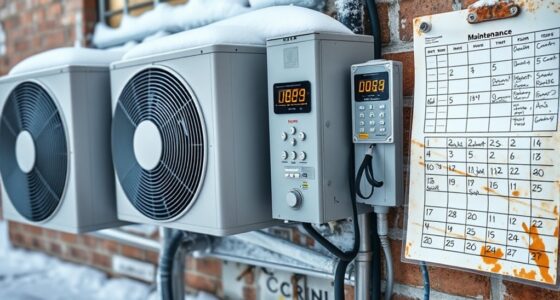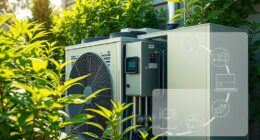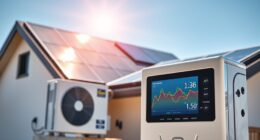Are you wondering how to enhance the energy efficiency of your heat pump? Look no further, as this article will decode the mystery surrounding heat pump energy efficiency ratings.
By understanding the importance of these ratings and the factors that affect efficiency, you’ll be able to make informed decisions to save energy and money.
Get ready to dive into the world of heat pump efficiency and discover the secrets to maximizing your comfort while minimizing your carbon footprint.
Key Takeaways
- Energy efficiency ratings determine the effectiveness of heat pumps.
- Higher ratings indicate more energy efficiency and cost savings.
- Understanding SEER and HSPF ratings is crucial for evaluating heat pump efficiency.
- Factors such as size, insulation, climate, maintenance, and installation affect heat pump efficiency.
The Importance of Energy Efficiency Ratings
Why are energy efficiency ratings so important for us when it comes to heat pumps?

Energy efficiency ratings play a crucial role in determining the effectiveness of heat pumps. By using advanced energy saving techniques, heat pumps can reduce energy consumption and lower utility bills. These ratings allow us to compare the performance of different models and make informed decisions based on their efficiency levels.
The higher the rating, the more energy efficient the heat pump is, resulting in significant cost savings over time. Additionally, energy efficiency ratings have a positive environmental impact. By reducing energy consumption, heat pumps help to decrease greenhouse gas emissions and combat climate change.
It’s important for us to prioritize energy efficiency when choosing heat pumps to minimize our carbon footprint and contribute to a sustainable future.
Understanding SEER and HSPF Ratings
When it comes to heat pump energy efficiency, understanding SEER (Seasonal Energy Efficiency Ratio) and HSPF (Heating Seasonal Performance Factor) ratings is essential for making informed decisions.
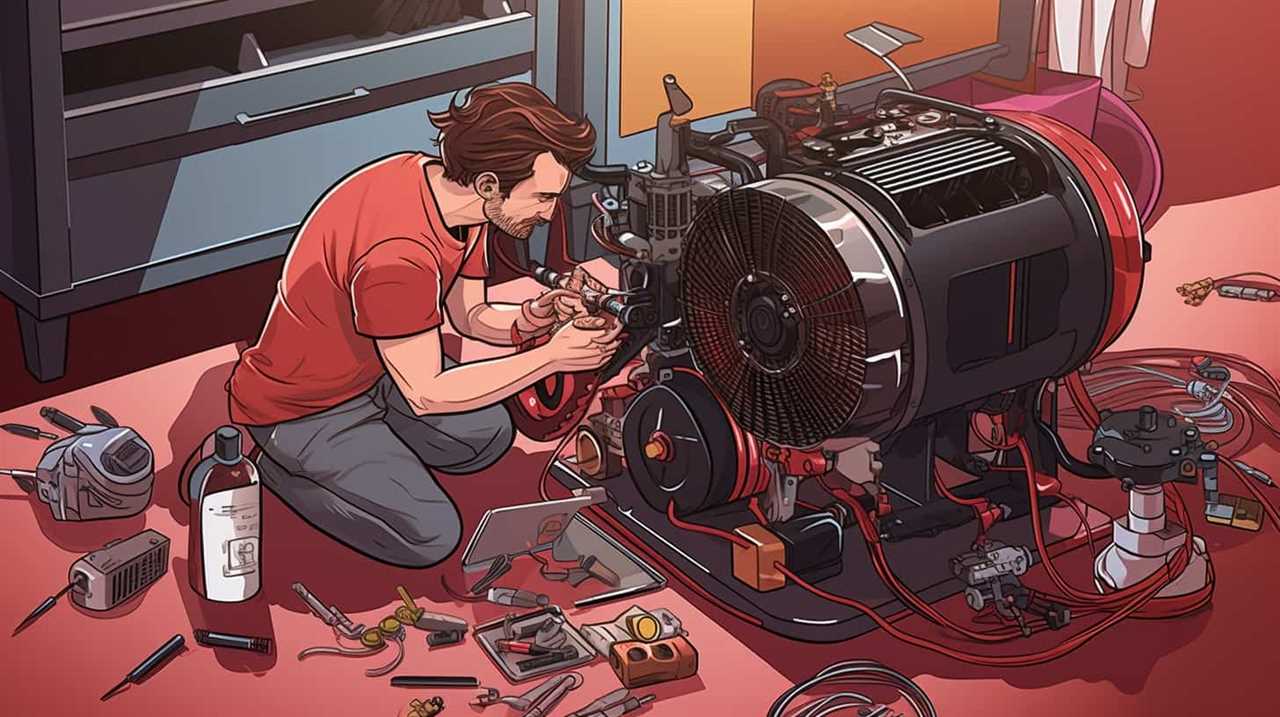
SEER measures the cooling efficiency of a heat pump, while HSPF measures its heating efficiency.
Both ratings are important indicators of a heat pump’s overall energy consumption and performance.
The SEER rating reflects the amount of cooling output a heat pump provides for each unit of energy input, while the HSPF rating measures the heating output per unit of energy input.
By considering these ratings, consumers can determine the energy efficiency of different heat pump models and choose the one that best suits their needs.

Now that we understand SEER and HSPF ratings, let’s explore the various factors that can affect heat pump efficiency.
Factors Affecting Heat Pump Efficiency
As consumers, we can improve the energy efficiency of our heat pumps by considering the factors that affect their performance and optimizing their operation. By understanding these factors, we can make informed choices that not only reduce our environmental impact but also save on energy costs. Some key factors that affect heat pump efficiency include the size and type of heat pump, insulation levels in our homes, and the local climate. Additionally, regular maintenance and proper installation play a crucial role in maximizing efficiency. To illustrate these factors, here is a table highlighting their impact on heat pump performance:
| Factor | Impact on Efficiency |
|---|---|
| Heat pump size | Proper sizing is essential for optimal efficiency. A unit that is too large or too small can result in energy wastage. |
| Insulation levels | Well-insulated homes retain heat better, reducing the workload on the heat pump and improving efficiency. |
| Local climate | Extreme temperatures can affect the efficiency of heat pumps. Units may struggle to maintain desired temperatures in very cold or hot climates. |
| Maintenance | Regular maintenance ensures that the heat pump operates at peak efficiency. Dirty filters, worn-out components, and refrigerant leaks can all impact performance. |
| Installation quality | Proper installation by a qualified professional ensures that the heat pump operates efficiently and minimizes energy losses. |
Understanding these factors and taking appropriate cost-saving measures can help us optimize the efficiency of our heat pumps and reduce our environmental impact. Now let’s explore how we can compare energy efficiency labels to make informed decisions about heat pump purchases.
Comparing Energy Efficiency Labels
To make informed decisions about heat pump purchases, we can compare energy efficiency labels and consider their ratings.

Energy efficiency labels provide valuable information about how efficiently a heat pump can convert electricity into heat or cool air. The labels typically include the energy savings potential of the heat pump, represented by a rating system such as SEER (Seasonal Energy Efficiency Ratio) or HSPF (Heating Seasonal Performance Factor).
These ratings indicate the energy efficiency of the heat pump under specific conditions. By comparing the energy efficiency labels of different heat pumps, we can determine which models offer the highest energy savings potential.
This information allows us to select a heat pump that not only meets our heating and cooling needs but also helps us save on energy costs in the long run.
Tips for Improving Heat Pump Energy Efficiency
One simple way we can improve heat pump energy efficiency is by regularly cleaning or replacing the air filters. Heat pump maintenance plays a crucial role in maximizing energy savings and ensuring optimal performance. Dirty or clogged filters restrict airflow, making the heat pump work harder to maintain the desired temperature.

By cleaning or replacing the air filters every one to three months, we can enhance the heat pump’s efficiency and reduce energy consumption.
Another energy-saving tip is to schedule regular professional maintenance for the heat pump. This includes checking and cleaning the coils, inspecting the refrigerant levels, and ensuring proper airflow.
Additionally, sealing any air leaks around windows, doors, and ductwork can prevent heat loss or gain, further improving the overall energy efficiency of the heat pump system.
Frequently Asked Questions
How Much Does a Heat Pump Cost to Install?
When it comes to heat pump installation expenses, there are various factors that can affect the overall cost. These include the size of the heat pump, the complexity of the installation, and any additional equipment or materials needed.
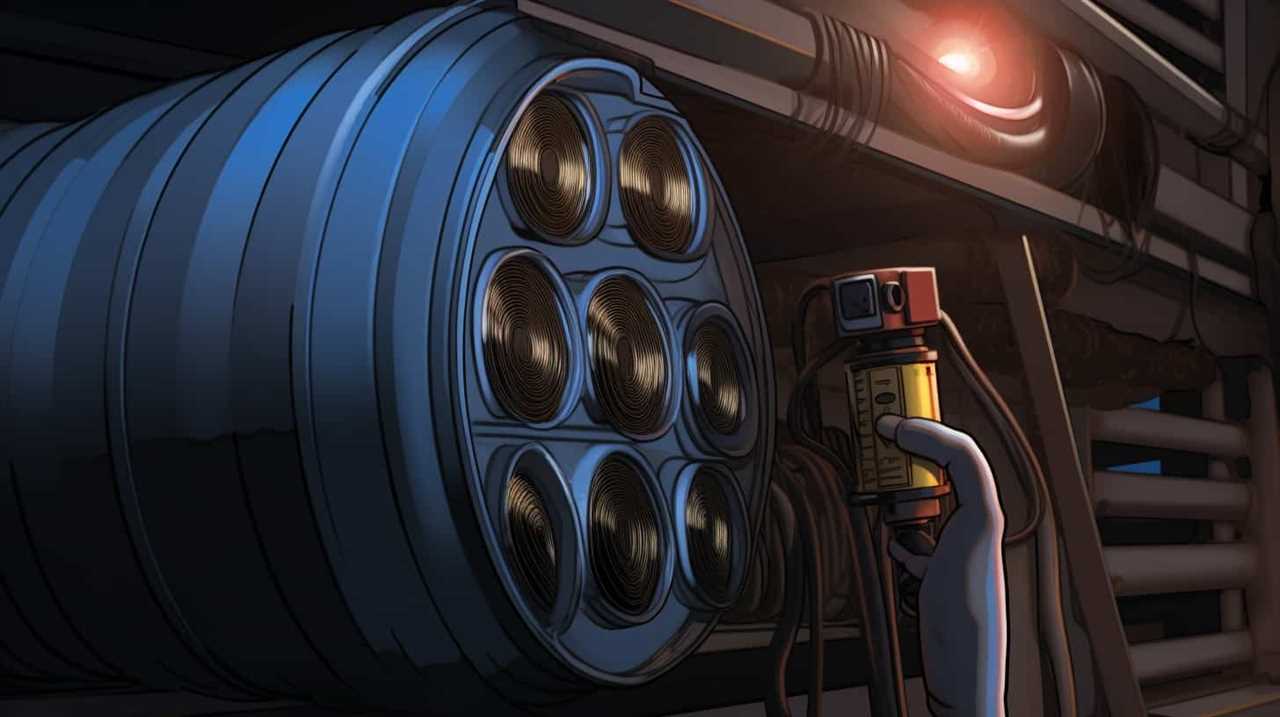
What Is the Average Lifespan of a Heat Pump?
The average lifespan of a heat pump depends on various factors such as usage, maintenance requirements, and model quality. Regular maintenance can extend its lifespan, but on average, a heat pump can last around 15-20 years.
Can a Heat Pump Be Used as a Primary Heating Source in Cold Climates?
Yes, a heat pump can be used as a primary heating source in cold climates. Its efficiency and suitability in cold climates make it an effective option for maintaining warmth and comfort.
Are There Any Government Incentives or Rebates Available for Purchasing a Heat Pump?
Yes, there are government incentives and heat pump rebates available for purchasing a heat pump. These programs aim to encourage energy efficiency and help offset the cost of installing a heat pump.
Can a Heat Pump Be Used to Cool a Home During the Summer Months?
Yes, a heat pump can be used to cool a home during the summer months. It offers many advantages, such as energy efficiency and cost savings, making it a popular choice for cooling systems.
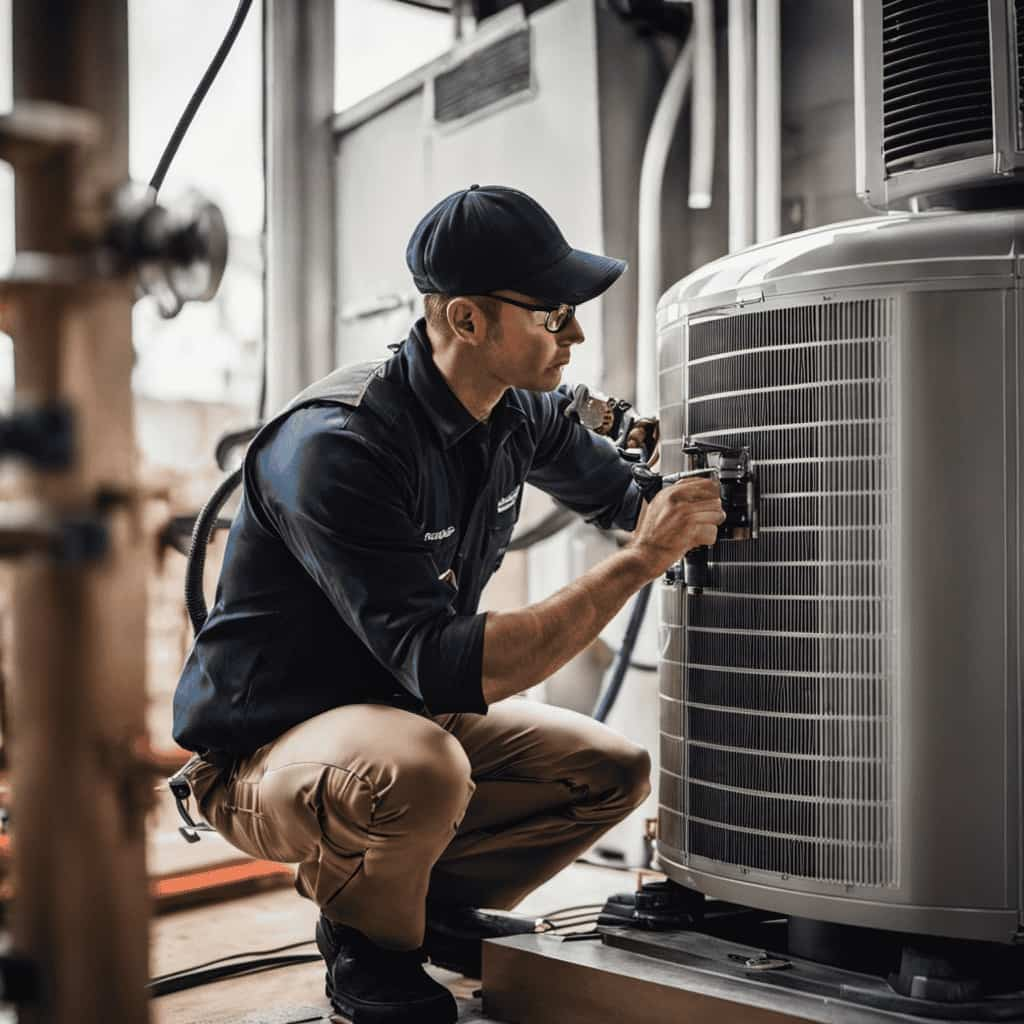
Why are Energy Efficiency Ratings Important for Heat Pumps?
Energy efficiency ratings of heat pumps are crucial. Decoding energy efficiency ratings of heat pumps allows consumers to understand the units’ effectiveness in converting energy into heat or cold. Higher ratings mean more efficiency, resulting in lower energy consumption and reduced utility bills. With the rising concern for climate change and energy conservation, being aware of these ratings helps individuals make informed decisions and contribute to a sustainable future.
Conclusion
In conclusion, understanding heat pump energy efficiency ratings is crucial for maximizing energy savings and reducing environmental impact.
By comparing SEER and HSPF ratings, homeowners can make informed decisions about the efficiency of different heat pump models.
Considering factors that affect heat pump efficiency, such as climate, insulation, and sizing, will help homeowners optimize their energy savings.
Improving energy efficiency through tips and techniques, such as regular maintenance, thermostat programming, and proper insulation, can further enhance the performance of heat pumps.

Embracing these strategies will lead to substantial cost savings and a greener future for all.


